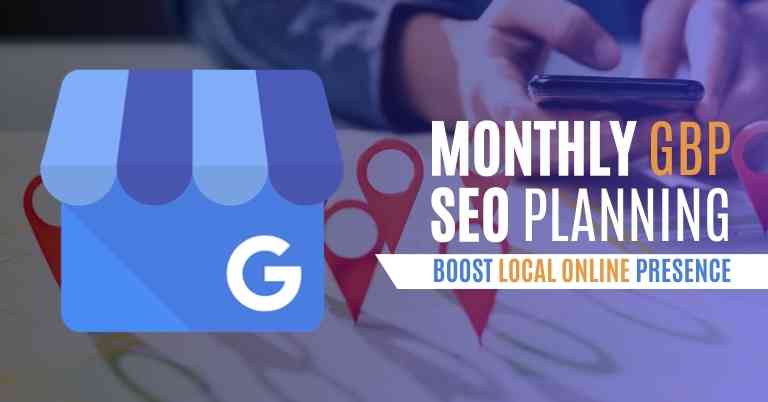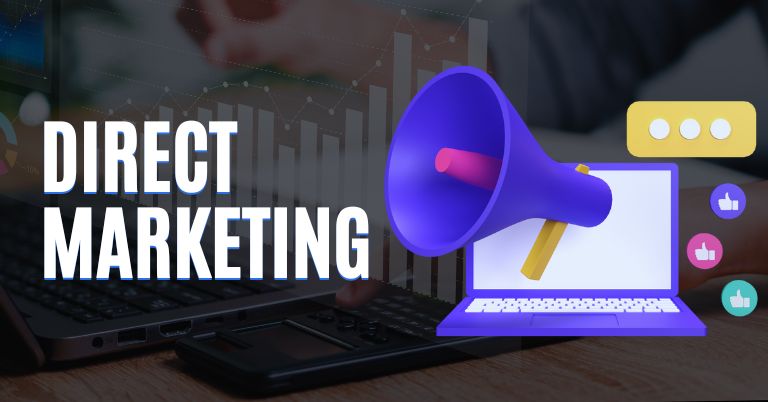There is no certain answer to this question because it depends on various factors, such as the quality of your SEO, the competitiveness of your industry, and how much traffic you are starting with. However, if your SEO is good and you are in a competitive industry, you could see a significant increase in traffic.
- Google SEO Trends 2023: #8 Factors that Dominate SEO Industry
- What Industries Need SEO the Most? Really!
- Is It Worth Hiring an SEO Expert in 2023?
- 20 Hacking Way: How to Make Money with SEO in 2023?
- Which is Better? – Pay for SEO or Do it Yourself?
- SEO for Non-WordPress Site
- How Much Do SEO Freelancers Make?
- How Many Meta Keywords Should I Use for SEO?
SEO can play a big role in increasing traffic to your website. By optimizing your site for search engines, you can increase your visibility and attract more visitors. However, SEO is just one element of a successful online marketing strategy.
To really boost your traffic, you need to promote your site through social media, email marketing, and other online channels.
Let's See the Topic Overview
93% of Online Experiences Begin With a Search Engine
“93% of online journeys start with a search engine, making SEO the gateway to the digital world and the key to unlocking a successful online presence; emphasizing the crucial role of SEO in guiding users to their desired destination.”
By unlocking the potential of SEO, businesses have the opportunity to tap into the massive network of online users and turn their virtual visits into meaningful interactions and conversions.
It’s no secret that search engines are the starting point for most of us when we’re looking for something online. In fact, a staggering 93% of all online experiences begin with a search engine. Whether we’re looking for a specific piece of information, wanting to buy a product, or just trying to find out more about a topic, we turn to search engines to help us out.
But how do they work? And why are they so important? Let’s take a look.
Search engines are essentially giant databases. They scour the internet, indexing all the pages they find so that they can be searched through later. When you type in a query, the search engine will trawl through its database and bring up all the pages that it thinks are relevant to your query.
The algorithms that decide which pages are relevant and which aren’t are constantly being updated and refined, but there are some basics that remain the same. The most important factor is still keywords – if your page contains the keywords that someone is searching for, then it’s more likely to show up in the results. Other factors include things like link popularity (how many other websites link to your page) and freshness (how recently your page was updated).
Of course, this is just a basic overview – there’s a lot more involved in how search engines work than this! But even understanding these basics can help you make sure that your website is as visible as possible on the internet. After all, if people can’t find you online, they can’t visit your website – no matter how great it is!
Does Traffic Increase SEO?
It’s a common misconception that traffic increases SEO. More traffic to your website will not necessarily lead to better rankings in search engine results pages (SERPs). In fact, if the increased traffic is coming from low-quality sources, it could actually hurt your SEO.
Optimizing for search engines is just the first step, real traffic growth blooms with a combination of relevance and user experience.
The quality of your traffic is much more important than the quantity. It’s better to have 100 visitors from high-quality sources than 1,000 visitors from low-quality sources.
Some factors that contribute to the quality of your traffic include:
- The relevance of the source site to your site’s topic For example, if you have a blog about cats and you get a link from another cat blog, that would be considered relevant. But if you got a link from a car blog, that wouldn’t be as relevant.
- The authority of the source site Authority is determined by things like inbound links and the age of the domain. A newer website with fewer inbound links is going to have less authority than an older website with many inbound links.
- The click-through rate (CTR) This measures how often people who see your listing in SERPs click on it. A higher CTR means that people find your listing more relevant and useful for their queries.
There are other factors that can influence your SEO such as on-page optimization and off-page optimization, but traffic quality is definitely one of the most important ones.
How Much Can SEO Increase Traffic?
Search Engine Optimization (SEO) is a powerful tool for increasing the visibility and organic traffic of a website. Optimizing a website for search engines can help it to rank higher in search results, making it easier for potential customers to find the website and visit it. But, how much can SEO actually increase traffic?
The answer to this question is not straightforward and can vary depending on several factors such as the website’s niche, target audience, current search engine ranking, quality and relevance of content, and overall authority and credibility of the website. However, with the right strategies in place, SEO has the potential to significantly increase a website’s organic traffic.
SEO may plant the seed, but content and engagement cultivate traffic growth.
For example, let’s consider a website that is currently receiving 10,000 visitors per month from search engines. After implementing effective SEO strategies such as keyword research, on-page optimization, and link building, the website may see a significant increase in organic traffic. It’s not uncommon for a well-optimized website to see a two-fold increase in organic traffic, resulting in 20,000 visitors per month or more.
It’s important to keep in mind that SEO is a long-term strategy and results are not immediate. It can take several months or even up to a year to see significant improvements in organic traffic. However, with consistent and ongoing efforts, the results can be substantial and long-lasting.
In conclusion, while the exact amount that SEO can increase traffic may vary, it has the potential to significantly boost a website’s organic traffic over time with the right strategies in place.
How Long Will It Take to See Increases in Traffic With SEO?
The time it takes to see increased traffic from SEO efforts depends on a variety of factors, including the competitiveness of the industry, the quality of the website and its current ranking, the efforts and strategies implemented, and the resources dedicated to the task.
Here is an example to illustrate this concept:
Let’s say that you own a website for a local florist in a mid-sized city with moderate competition. The website is currently ranking on page three for the target keyword “florist in Florida”. You have decided to invest time and resources into improving the website’s SEO, with the goal of increasing traffic and boosting conversions.
Here is a general time frame for what you might expect to see:
- Short-term (3-6 months): During the first few months, you might expect to see some small, incremental improvements in your website’s search engine ranking. This could be due to optimizations made to your website’s on-page elements, such as title tags and meta descriptions. You may also start to see a small increase in traffic as a result.
- Mid-term (6-12 months): Over the next 6-12 months, you should see more significant improvements in your website’s ranking, visibility, and traffic. This will be due to a combination of on-page optimization, high-quality link building, and other efforts. You may also see an increase in conversions, as more targeted traffic comes to your website.
- Long-term (12+ months): By this stage, you should be seeing consistent growth in your website’s traffic and conversions. However, it’s important to remember that SEO is an ongoing process, and you will need to continue to invest time and resources to maintain and improve your results. This might include ongoing link building, ongoing optimization of your website’s content, and staying up-to-date with best practices and algorithm changes.
It’s worth noting that SEO is an ongoing process and requires continuous effort to maintain and improve results. Furthermore, search engine algorithms are constantly evolving, so staying up-to-date with best practices and making adjustments to your strategy accordingly is crucial for long-term success.
This is just one example and your results may vary depending on the competitiveness of your industry and the quality of your website and SEO efforts. However, it’s safe to say that it can take several months to a year or more to see significant results from SEO.
Does SEO Drive 1000% More Traffic Than Social Media?
SEO and social media are both important for increasing website traffic, but it’s not accurate to say that SEO drives 1000% more traffic than social media. Both methods have their own unique strengths and weaknesses and the best approach is to use a combination of both.
SEO is a long-term strategy that focuses on improving a website’s visibility and ranking in search engine results pages (SERPs). By optimizing the website’s content and structure, it can attract organic traffic from search engines and drive more visitors to the website. However, the results of SEO efforts may take several months or even up to a year to materialize, depending on the competitiveness of the industry.
On the other hand, social media is a great way to drive short-term traffic to a website. By sharing links to a website on social media platforms, it can attract a large audience and drive traffic to the website quickly. However, the traffic from social media is often less targeted and less likely to convert into sales or leads.
In conclusion, it’s not accurate to say that SEO drives 1000% more traffic than social media, as both methods have their own strengths and weaknesses. The best approach is to use a combination of both SEO and social media to drive traffic to a website and achieve the best results.
What is the Success Rate of SEO?
There is no one answer to this question as the success rate of SEO (Search Engine Optimization) depends on a number of factors, including the quality of the SEO campaign, the competitiveness of the industry, and the overall goals of the website. However, we can look at some general statistics to get an idea of how successful typical SEO campaigns are. According to Moz’s 2016 Industry Survey, which polled over 1,000 in-house and agency marketers from around the world, 54% of respondents said that their SEO efforts had increased traffic to their websites.
SEO is the compass, but traffic growth is the journey, and a great user experience is the destination.
In addition, 43% said that they had seen an increase in conversions/sales due to their SEO campaigns. While these numbers show that a majority of marketers are seeing positive results from their SEO campaigns, it’s important to note that success rates can vary greatly depending on the individual circumstances. For example, a small business in a non-competitive industry is likely to see much better results from its SEO efforts than a large company in a highly competitive market.
Similarly, a website with well-optimized content and technical infrastructure are likely to see better results than a site with poor optimization. Ultimately, there is no guarantee of success when it comes to SEO but by working with an experienced and reputable agency or consultant, you can give your website the best chance for success in search engine rankings.
SEO ROI Statistics
Are you looking for SEO ROI statistics? Well, you’ve come to the right place! In this blog post, we’re going to take a deep dive into SEO ROI statistics and what they mean for your business.
First, let’s define what SEO ROI is. SEO ROI stands for “return on investment.” Basically, it measures how much money you make from your website traffic after investing in SEO.
For example, if you spend $1,000 on SEO and your website generates $10,000 in revenue as a result, your SEO ROI would be 10%. Pretty simple, right? Now that we know what SEO ROI is, let’s look at some statistics.
According to HubSpot, the average return on investment for businesses that invest in SEO is 122%. That means for every dollar you spend on SEO, you make $1.22 back in revenue! And those are just the averages—some businesses see even higher returns.
For example, one case study from Moz showed that an organization saw a 516% return on its investment after implementing an effective SEO strategy. Clearly, there are some serious benefits to investing in SEO! Not only can it help increase your website traffic and revenue, but it can also have a huge impact on your bottom line.
If you’re not already incorporating SEO into your digital marketing strategy, now is the time to start. Trust us—your future self will thank you!
Average ROI for SEO
Search Engine Optimization (SEO) is one of the most popular and effective ways to improve your website’s visibility and organic traffic. And while the benefits of SEO are well-known, the average ROI for SEO projects can be hard to quantify. There are a number of factors that can affect SEO ROI, including the size and scope of the project, the competitiveness of your industry, and your company’s overall marketing strategy.
But in general, businesses can expect to see a healthy return on their investment in SEO. One study found that businesses that invested in SEO saw an average ROI of 575%! And another study showed that companies that used an integrated approach to marketing (including SEO) saw an average ROI of 942%.
Of course, your mileage may vary depending on your unique situation. But if you’re looking for a way to improve your website’s visibility and organic traffic, investing in SEO is a smart move that is likely to pay off handsomely.
What Kind of Traffic Does a Better SEO Increase?
There are many benefits of SEO, but one of the most important is its ability to increase traffic to your website. By optimizing your site for search engines, you can attract more visitors and improve your chances of ranking higher in search results. This, in turn, can lead to more traffic and even better conversion rates. A better SEO can increase different types of traffic to a website, including:
- Organic Traffic: Organic traffic is the traffic that comes to a website through search engine results. A better SEO can increase organic traffic by improving the website’s search engine ranking for target keywords, making it more visible and accessible to potential visitors. For example, if your website is ranking on page three for the keyword “best florist in [city name]”, a better SEO can help move it up to page one, resulting in an increase in organic traffic from search engine users searching for that keyword.
- Direct Traffic: Direct traffic refers to the visitors who type the website’s URL directly into their browser or access it through a bookmark. A better SEO can increase direct traffic by building brand awareness and making it easier for potential visitors to remember the website’s URL.
- Referral Traffic: Referral traffic is the traffic that comes to a website from other websites. A better SEO can increase referral traffic by building high-quality backlinks from other reputable websites in the industry. This not only helps improve the website’s search engine ranking but also sends targeted traffic from the referring website.
- Social Media Traffic: Social media traffic refers to the visitors who come to a website from social media platforms. A better SEO can increase social media traffic by improving the website’s visibility on search engines, making it more likely for users to discover and share the website’s content on social media.
It’s worth noting that not all types of traffic will necessarily increase with better SEO, and the impact on each type of traffic can vary. However, a well-optimized website is likely to see an increase in organic and referral traffic, which are often the most valuable and targeted sources of traffic for a website.
SEO ROI Calculator
If you’re running a business, it’s important to track your return on investment (ROI) for all of your marketing efforts. That includes SEO. There are a lot of different factors that go into SEO, so it can be tricky to calculate your ROI.
But there are some tools and methods you can use to get a good idea of how much money you’re making from your SEO campaigns. One way to calculate your SEO ROI is by looking at the cost per lead. This is the amount of money you spend on average to generate one new lead through SEO.
To calculate this, add up all the costs associated with your SEO campaigns (including staff time, software, etc.) and divide it by the number of new leads generated from those campaigns. Another way to look at ROI is conversion rate. This is the percentage of people who take a desired action after reaching your website through an organic search result.
For example, if 100 people visit your site from an organic search and three of them buy something, your conversion rate would be 3%. You can also track other goals as conversions, such as newsletter signups or contact form submissions. To get more accurate data on your conversion rates, set up goal tracking in Google Analytics.
This will give you detailed information on what people do when they reach your site from an organic search result. Once you have some data points, you can start to see patterns and trends over time. This will help you understand which changes in your SEO campaign are resulting in more leads or higher conversion rates so that you can adjust accordingly.
SEO Return on Investment (ROI)
SEO return on investment (ROI) is one of the most important metrics to track when running a website. It can be defined as the ratio of organic traffic coming from search engines to the total number of visitors to your site. A high SEO ROI means that your website is getting a lot of free, organic traffic from search engines.
This is great news for your business, as it means you’re likely ranking well for relevant keywords and phrases. There are a number of factors that contribute to a high SEO ROI. These include having a well-optimized website, strong backlinks, and quality content.
If you can focus on these areas, you’ll be well on your way to achieving a high ROI from your SEO efforts.
Does SEO Matter?
Search engine optimization (SEO) is the practice of improving the ranking of a website on search engines. The higher the ranking, the more likely people are to find the site. This can be done through optimizing the website’s content, structure, and design, as well as developing off-site SEO tactics like link building and social media engagement.
Despite its importance, SEO is often misunderstood or mishandled by website owners. This can lead to wasted time and effort, or even worse – penalties from Google that can tank your rankings and visibility. This is why it’s important to partner with an experienced and certified SEO professional who can help you navigate the ever-changing landscape of search engine optimization.
With their help, you can ensure that your website is optimized for both users and search engines, helping you attract more visitors and convert them into customers.
Impact of SEO
The Impact of SEO on Your Business The impact of SEO is huge. It can make or break your business.
Here are some things to consider when thinking about the impact of SEO on your business:
- The reach of your website: With a good SEO strategy, your website will rank higher in search engine results pages (SERPs), making it more visible to potential customers. This increased visibility leads to more traffic, and ultimately, more conversions and sales.
- The cost-effectiveness of SEO: When compared to other marketing strategies like pay-per-click advertising, SEO is very cost-effective. You don’t have to pay for each click or impression like you do with PPC ads. Instead, you invest time and money into optimizing your website so that it ranks well in organic search results.
- The ROI of SEO: A well-executed SEO campaign will bring you a high return on investment (ROI). Studies have shown that businesses that invest in SEO see an average ROI of 20%. That means for every $1 invested into SEO, they see an average return of $5!
- The long-term effects of SEO: Once you achieve top rankings in SERPs, you’ll likely maintain those positions for a long time as long as you continue practicing good SEO habits such as regularly creating quality content and building links. This provides valuable stability and predictability for your business’s growth trajectory. SEO is one of the most important aspects of online marketing, and its impact should not be underestimated.
If you’re not investing in SEO, now is the time to start!
Conclusion
SEO can be a powerful tool to increase traffic to your website. By optimizing your site for search engines, you can improve your visibility and attract more visitors. However, SEO is not a magic bullet, and it takes time and effort to see results.
Additionally, there is no guarantee that increased traffic will lead to increased sales or conversions. Nonetheless, if you are willing to put in the work, SEO can be a great way to boost your website’s traffic.
Keep Learning With Sajib Roy













Interesting page. I really like the topic covered here. I’ll check back from time to time for more posts like this one.